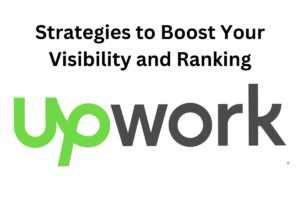Building a strong personal brand as a freelancer is essential for standing out in a competitive marketplace, establishing credibility, and attracting clients. To create a compelling personal brand, freelancers should focus on several key strategies.
Firstly, define your unique value proposition and identify what sets you apart from other freelancers in your field. This involves understanding your strengths, skills, and expertise, as well as your target audience and the problems you can solve for them. By clearly articulating what makes you unique, you can effectively communicate your value to potential clients and differentiate yourself in the marketplace.
Next, establish a consistent brand identity across all your online platforms and communication channels. This includes your website, social media profiles, portfolio, and any other channels where you interact with clients and prospects. Use consistent branding elements such as logos, colors, fonts, and messaging to create a cohesive and memorable brand presence that reflects your personality and professionalism.
Additionally, showcase your expertise and demonstrate your skills through your portfolio and content creation. Curate a portfolio that highlights your best work and showcases the results you’ve achieved for past clients. Additionally, create valuable content that educates, inspires, and engages your audience, positioning yourself as a trusted authority in your niche and demonstrating your expertise to potential clients.
Another important aspect of building a strong personal brand as a freelancer is cultivating and nurturing relationships with your audience and clients. Engage with your audience on social media, respond to comments and messages, and participate in relevant discussions and communities. Building genuine connections and providing value to your audience helps foster trust and loyalty, leading to long-term relationships and repeat business.
Furthermore, actively seek out opportunities to showcase your expertise and establish yourself as a thought leader in your industry. This may involve speaking at industry events, participating in webinars or podcasts, writing guest blog posts, or contributing to relevant publications. By sharing your knowledge and insights with a wider audience, you can elevate your brand and attract new clients and opportunities.
Finally, regularly monitor and evaluate your brand to ensure that it remains relevant and resonates with your target audience. Solicit feedback from clients and peers, track your online presence and engagement metrics, and make adjustments as needed to stay aligned with your brand goals and objectives.
In conclusion, building a strong personal brand as a freelancer requires careful consideration, consistent effort, and ongoing engagement with your audience and clients. By defining your unique value proposition, establishing a consistent brand identity, showcasing your expertise, nurturing relationships, positioning yourself as a thought leader, and monitoring your brand’s performance, you can create a compelling personal brand that attracts clients, fosters trust, and drives success in your freelance career.



